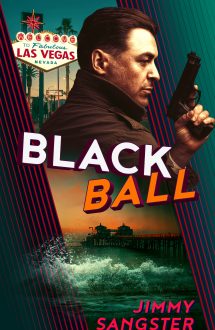
There are times I get the odd review from readers and critics that my characters are too glib or too articulate to be tough guys. Or, “real people don’t talk like that”. Early in my writing career, I wrote a Young Adult novel that was rejected because, “young people aren’t this articulate or humorous” (now you know why more teens don’t read).
If you met my four kids and their friends you would find that some people (those with intellect and a sense of humor) do talk like that. Why? Because they are well-read, articulate and intelligent and each possess a well-developed sense of humor.
Second, if you met my friends, you would likewise acknowledge that there are people who are glib and articulate in conversation. I don’t hang around with boring people. Many of my friends are laugh out loud funny. Authors I have met are likewise very glib and have a pronounced sense of humor.
Third, who wants to read boring dialogue? I read books that take me interesting places, peopled with interesting characters, engaged in stimulating, provocative and humorous conversation. I want to be bored I’ll watch network sitcoms.
Wyatt Storme, Chick Easton and Cole Springer are larger-than-life characters. Nobody would read two pages about my life. Yours either. Sorry, it’s the truth. Real people may not be that funny but Chick Easton and Cole Springer are. Wyatt Storme has his moments but Easton is the comic relief and given the best lines.
As a writer I am much influenced by writers such as Mark Twain (fellow Missourian), Ernest Hemingway and Elmore Leonard (the master of interesting dialogue and equally interesting inner dialogue). Twain is the father of the modern novel in that his characters sound like real people instead of 17thCentury royalty. Hemingway’s “Theory of Omission” can be defined as “what to leave out”. Leonard posits a similar maxim, “Try to leave out the part that readers tend to skip.” (Leonard’s “10 Rules for Good Writing”).
I leave out the boring conversation. I read it out loud and it’s boring I cut it. I’ve cut thousands of pages of boring dialogue, extraneous dialogue, boring details and boring narrative. Narrative is a tough one as for a writer to play fair there is often a certain amount of revealing narrative to be dealt with. The trick is to make that narrative likewise interesting or to include details in conversation or the inner dialogue of the characters.
Inner dialogue in the Wyatt Storme series comes exclusively from the mind of Storme as the narrative is first-person singular. Cole Springer, on the other hand, is written in third person omniscient, which gives the writer more freedom to move about and get inside secondary (and sometimes tertiary) characters minds to move along the plot and character development. Be careful of doing too much with tertiary characters inner dialogue as they can rob the storyline if the writer is not careful (and some aren’t).
I do not set out to be funny. Nor do I attempt to be glib. I create characters who are glib, who are funny and interesting and their personality suggests the humor. In other words they only say what they would say in any situation. I can’t help it if they’re funny. Humor must arise organically from the background and intelligence of the characters. If I have created fully-realized characters then it follows that humor and engaging dialogue will grow under my hands. Trust me, ask my kids, I’m not that funny in real life. Conversely, my kids ARE that funny in real life.
Even more important than making your readers laugh is to make them smile. Smiles tend to linger and melt in the reader’s mind. Also, Make ‘em laugh, make ‘em cry, make ‘em think and put them on edge, but don’t let them for one second consider not reading your next sentence, your next paragraph or chapter. Hook ‘em and reel them in. All readers are keepers.
That’s your job as a writer. And, I love my job.
W.L. Ripley is the author of the Wyatt Storme novels, published by Brash Books.


